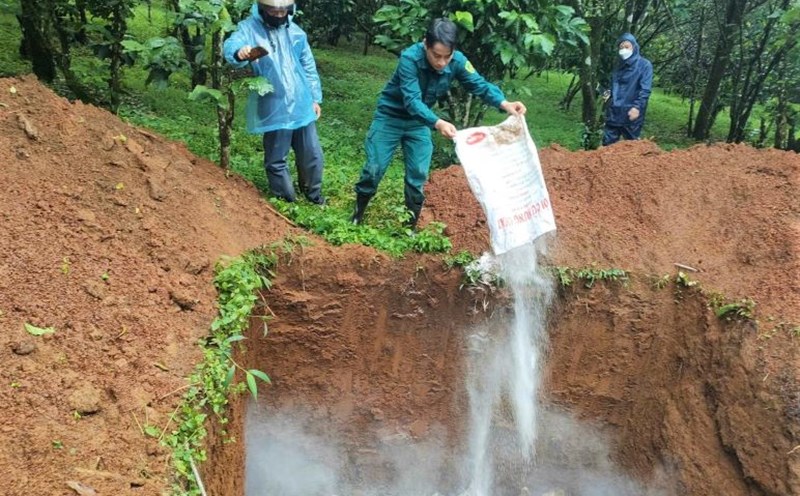On August 1, the Department of Animal Husbandry and cultivation of Ba Ria - Vung Tau (HCMC) said that it had detected 2 outbreaks of African swine fever in wards and communes and was implementing many measures to control and prevent the risk of widespread spread.
Previously, 2 outbreaks were detected in Hoa Hoi commune and Nghia Thanh commune on July 26 and 28. Immediately after suspecting an outbreak, the veterinary force coordinated with the locality to take samples for testing and tested positive for the African swine fever virus.
In particular, in Hoa Hoi commune, the T.M livestock household (a total of 37 pigs) had 2 pigs (including 1 breeding male pig and 1 pig) dead with symptoms of fever and convulsions. The outbreak in Nghia Thanh commune was more serious when consecutive cases of dead pigs were recorded. Mr. X.K's household (a total of 134 pigs) destroyed 24 pigs with a total weight of more than 2 tons.
The Department has requested relevant units to coordinate with the authorities of communes to synchronously deploy response measures: destroying sick pigs, cleaning and disinfecting barns, distributing epidemic prevention supplies and giving technical instructions to people. At the same time, the livestock owner is required to strictly prohibit transportation, sale or receipt of new flocks during the monitoring period.
The destruction process was closely monitored by the government and specialized agencies. Therefore, all dead pigs were destroyed in accordance with regulations. Through monitoring, up to now, the remaining herd is currently healthy, no new cases have been recorded.
The authorities have also closely monitored the epidemic situation in neighboring areas, strengthened control of illegal transportation and slaughter of pigs, and strictly handled acts of dumping dead pigs that pollute the environment.
According to the Department of Animal Husbandry and Crop Production, in the context that the whole country has recorded more than 1,000 African swine fever outbreaks since the beginning of the year, localities must not be subjective, but must continue to implement response measures that have been developed and implemented.
At the same time, it is recommended that localities consider policies to support livestock farmers affected by the epidemic; step up propaganda work to raise public awareness, proactively prevent diseases from the grassroots.











